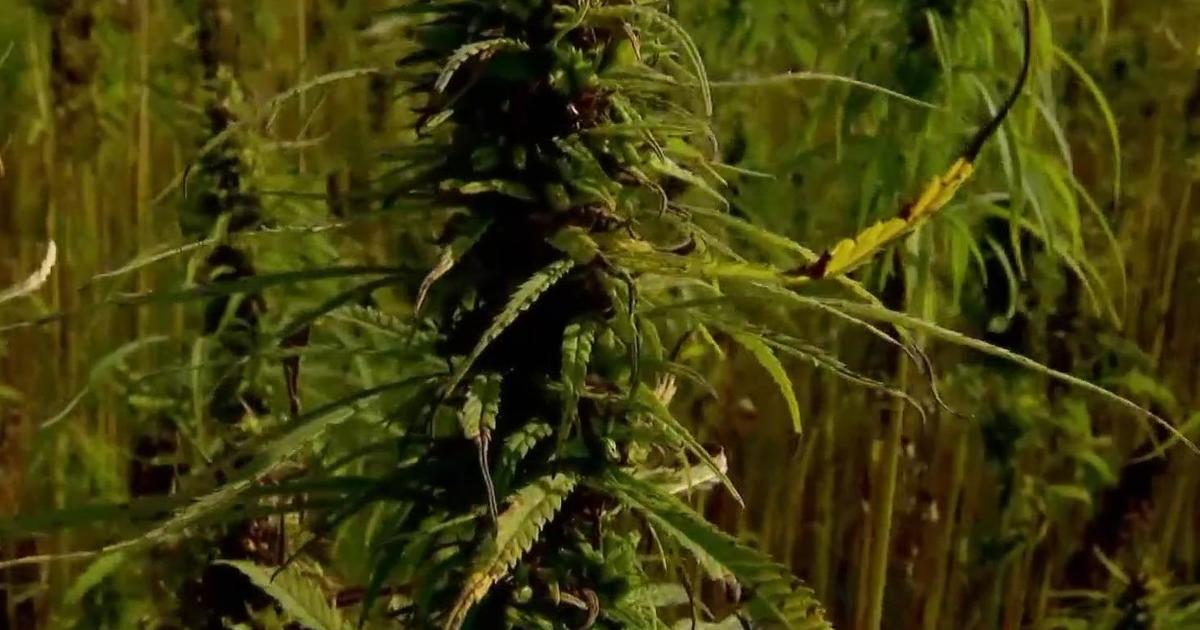SACRAMENTO — A ban on all hemp products with “any detectable quantity of THC” is in effect under an emergency order by Gov. Gavin Newsom and the California Department of Public Health (CDPH). In response, the state is facing a lawsuit.
Retailers can no longer sell any products made with hemp THC to California customers, which includes non-intoxicating CBD medicinal products used by millions of people statewide.
Those who rely on CBD as medicine say the new emergency regulations do more harm than good, hurting some of the most vulnerable populations in the state.
Before the ban took effect, CBS13 first interviewed the mother of a child with disabilities who relies on daily CBD to calm her violent seizures.
Advocates add that California, home to the largest population of United States veterans, is among the most impacted.
“This is hitting veterans disproportionately hard,” Army and National Guard veteran Will Wisner said. “We’re losing guys at the rate of 22 or more a day to suicide to where we have lost over 150,000 veterans since 9/11 to suicide. Think about that number, that is huge.”
Wisner is the executive director of the California-based nonprofit Grunt Style Foundation that helps support veterans.
“I would hate to think we are going to lose lives over this kind of decision, but people do drastic things when they are in pain, when they are feeling hopeless,” Wisner said.
Like many veterans, he found CBD to be a huge help on his long journey to physical and emotional healing after war.
“I had to figure out how to take my own health care into my own hands,” Wisner said. “I have to self treat with CBD. Luckily, CBD is wildly effective on my auto-immune disorder and helping me fight inflammation and pain.”
CBD advocates argue that Newsom’s emergency regulations slapped onto the hemp industry are too broad. Though they agree that industry regulations are needed, they say they should not punish people who rely on non-intoxicating CBD products.
“I mean, it’s completely cut off the access currently. Everything is on a 180 days pause since the emergency order went into place,” Wisner said.
A lawsuit has now been filed by six hemp companies and one nonprofit against California’s Department of Public Health, its director and 50 unnamed “John Does.”
This draconian regulation alone will essentially devastate an emerging industry that consists largely of small business owners. It’s akin to requiring candy to stop containing sugar… starting tomorrow,” the lawsuit reads.
Among the plaintiffs are some star-studded stoners: Cheech and Chong. The comedy duo brought cannabis culture to Hollywood and now, Cheech Marin and Tommy Chong’s cannabis company is among those pushing back against Newsom’s new regulations.
“Overnight, major swaths of the hemp and hemp products industries in California became immediately illegal,” the lawsuit reads.
Gov. Newsom, in the emergency regulations he first announced on Sept. 6 at a press conference in Sacramento, wants to crack down on industry bad actors. Newsom said too many are taking advantage of an unregulated market and enticing kids with THC products marketed to a young audience through THC gummies, candies and drinks.
“Intentionally trying to manipulate our children. Available everywhere. Gummies directly targeted to our kids. It’s a disgrace and it’s a shame,” Newsom said at the press conference.
“We’re going to take it to the next level and make sure enforcement is out there, so young people in particular are protected,” added Dr. Mark Ghaly, secretary of the California Health and Human Services Agency.
But now advocates ask in response: what about medicinal access for children with disabilities who rely on CBD to calm their seizures, products that contain only a trace amount of THC, used daily by veterans like Wisner?
“Taking options away from us seems like madness. No matter how well-intentioned it may be,” Wisner said. “Frankly, it’s insidious. We are now playing with the lives of a very vulnerable population that has grown dependent on this natural and holistic healing modality.”
CBS13 reached out to both Gov. Newsom’s office and the CDPH for comment on this story. Both agencies responded by saying that they do not comment on pending litigation.
The emergency regulations took effect on September 23 and will remain in place until March 25, 2025.

